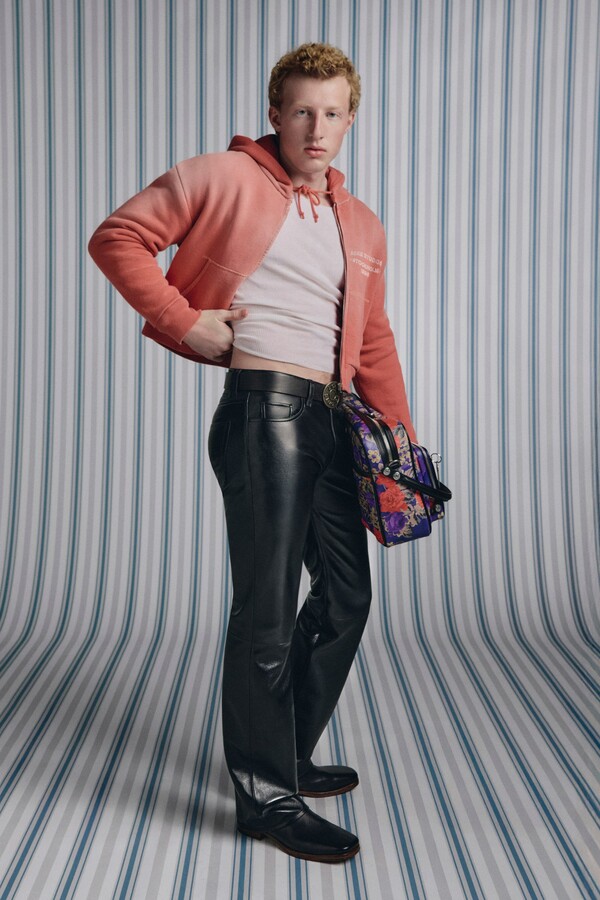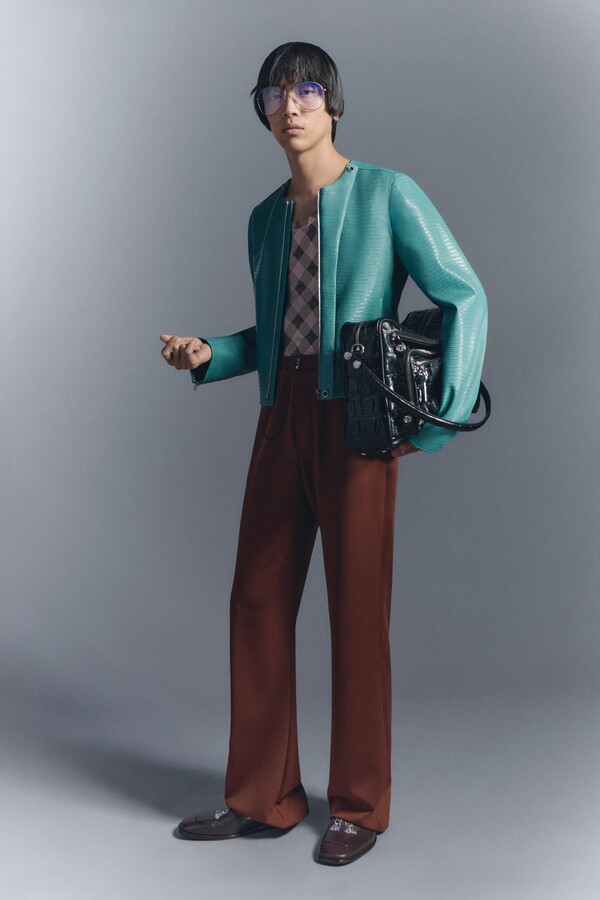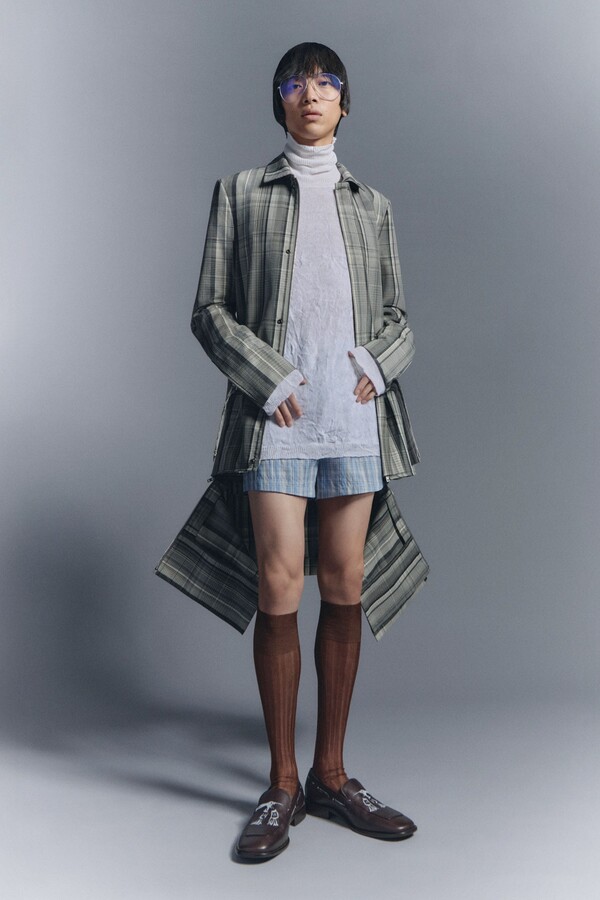Cool by Default: Acne Studios SS26 Is Quietly Loud
Some collections demand attention. Others simply hold it. Acne Studios’ Spring/Summer 2026 menswear show belongs to the latter — a steady, self-contained meditation on masculinity, filtered through spontaneity, nostalgia, and an almost academic sense of cool.
There’s a quiet rebellion at play. Instead of chasing sharp tailoring or polished perfection, creative director Jonny Johansson leans into instinct — clothes that feel lived-in, worn out, passed down. The pieces don’t scream for significance. They already carry it.
Silhouettes swing freely between extremes: shrunken T-shirts meet stretched-out shirts, oversized jogging trousers sit beside narrow, vintage-style jeans. Academic influences linger in the elongated collars, slim-cut silhouettes, and silk shirting that reference ‘70s prep — but it’s all softened, made less precise on purpose. There’s ease here, but it’s deliberate.
The collection balances soft chaos with archival continuity. The return of Acne’s “1979” jeans in a sharp, modern cut and the reworked “2010” low-rise denim — now visibly mended — anchor the narrative in house history. Paired with caps, cowboy boots, and the comeback of the Camero bag, these details blur past and present into a single, non-linear timeline.
Then there’s the texture of personality: sweatshirts with subtle fading, denim that looks like it’s seen a garage floor, suede backpacks marked by human touch. Every item feels like a memory. Not curated, but collected.
Johansson describes the attitude behind the collection as “geeky” and “quietly confident” — and that’s exactly what comes through. Acne isn’t redefining masculinity as much as it’s loosening its grip. There’s no singular figure on the runway, no fixed type. Just a rhythm of garments that breathe a little easier, step a little slower, and exist on their own terms.


